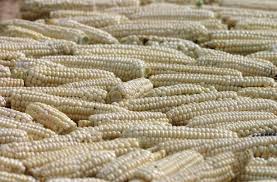In Ghana, maize farmers often release their full yields to the market immediately after harvest. Because of the mechanics of supply and demand, this is not always the best time to make the product available, as the prices drop when the market becomes saturated.
Herein lies an opportunity for an investor or entrepreneur, according to Ben Kemetse, co-founder of M&B Seeds and Agricultural Services. It is one he has considered pursuing himself.
“Our market structure is such that if the price falls so much, the farmer may not make any money at all,” he explains. Warehousing with appropriate technology and processes in place to maintain the integrity and quality of the grain would solve a problem for the farmers and provide a potentially lucrative opportunity for the player offering the storage space, Kemetse argues.
“If you ask me where there is a business opportunity, this is one that exists in the value chain where M&B operates,” he says.
A study found that while some of these storage solutions already exist in Ghana, there were various reasons why they were not effective. In some cases, monitoring insects and grain moisture at the farm- and warehouse-storage facilities were not effective or reliable. The study also mentions that farmers were not necessarily patronising warehouse storage systems. A third finding was a lack of shelling, drying, and storage facilities in close proximity to grain-producing communities.
According to Kemetse, the next step is to provide a warehouse for storage close to grain farms and offer the farmers a guaranteed price.
He believes the owners of storage facilities like these could even consider adding some value to the grains, e.g. milling small quantities to provide directly to stores.
Source: howwemadeitinafrica.com








